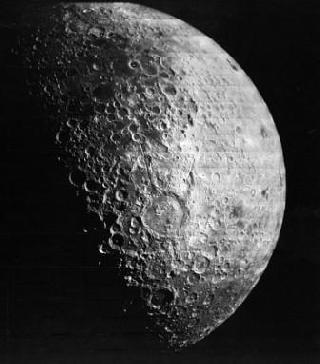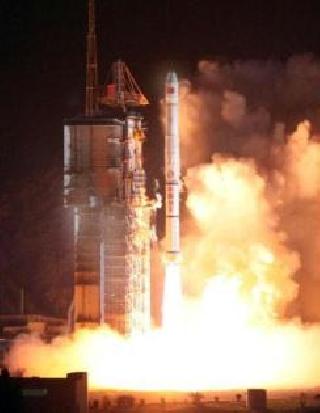
LONDON (PTI): For the first time since the last Apollo landings of 1968s, scientists are planning to explore the dark side of the Moon using a manned spacecraft.
Engineers with aerospace giant Lockheed Martin want to send up astronauts into stationary orbit above the planet to study it further.
The American firm hopes to use remote controlled robots dispatched from their spacecraft to collect samples and explore the South Pole-Aitken basin on the Moon -- one of the oldest craters in the solar system, the Daily Mail reported.
Scientists hope the mission will serve as a test for a future possible mission to Mars as the six month trip would help study whether the equipment and the astronauts are able to endure long-term space travel.
NASA has in the past estimated that it could take around a year to complete a round-trip to the Red Planet and back, allowing a few months to collect samples.
Lockheed's plan involves using the combined gravity of the Earth and the Moon to ensure that its craft hovers on the same spot, within sight of both planets. It has pitched what it is calling the L-2 Farside Mission Orion spacecraft to do the job, which would house both astronauts and probes.
If NASA approves the mission, it will allow seeing how humans respond to lengthy doses of deep space radiation, a key problem on a longer Martian trip.
"We have come up with a sequence of missions that we've named 'Stepping Stones,' which begins with flights in low Earth orbit and incrementally builds towards a human mission to the moons of Mars in the 2030s," said Josh Hopkins of Lockheed Martin's Human Spaceflight Advanced Programs department.
The first Orion missions to the moon's far side, viewed as feasible by 2016 to 2018, would accomplish science goals on the lunar surface using robotic rovers controlled by astronauts in space "as practice for doing the same thing at Mars," Hopkins told SPACE.com.
The far side of the Moon is permanently turned away from us and at best we can only ever see one fifth of it. The surface was first photographed by Luna 3, a Soviet probe, in 1959 then the Apollo 8 mission followed in 1968 but there has been scant exploration of it since.
The rocky desolation on the dark side of the moon was best summed up by Apollo 8 astronaut William Anders who said: "The backside looks like a sand pile my kids have played in for some time. It's all beat up, no definition, just a lot of bumps and holes."
A mission to Mars could involve swinging a spacecraft out of the Earth's orbit and into that of Mars before slowly making a descent.
Earth and Mars have to be at the right positions in their orbit for this method to work.
Such a technique could take around 16 months but could be cut to four months if a nuclear rocket was used.
 Previous Article
Previous Article Next Article
Next Article












The Indian Air Force, in its flight trials evaluation report submitted before the Defence Ministry l..
view articleAn insight into the Medium Multi-Role Combat Aircraft competition...
view articleSky enthusiasts can now spot the International Space Station (ISS) commanded by Indian-American astr..
view article